Brown-eyed susan by pinweed
And now back to Bastrop County. When I visited on June 4th I found this flower head of Rudbeckia hirta, known as brown-eyed susan or black-eyed susan. (You may remember seeing a whole colony of these in a post on the Fourth of July.) This time the warm background color came not from the earth, as it did in the photograph of the lazy daisy, but from some drying narrowleaf pinweed, Lechea tenuifolia.
———
UPDATE. Entomologist Mike Quinn has finally tracked down the identity of the purple sawfly larvae you saw here a few days ago. If you go back to that post, near the end you’ll find the identity and a link to what an adult looks like (and see how different it is).
© 2015 Steven Schwartzman

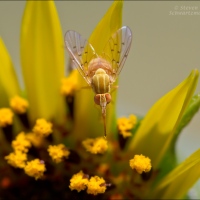
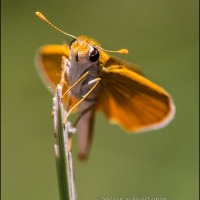
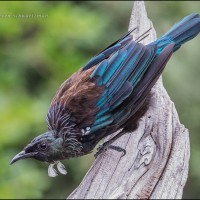
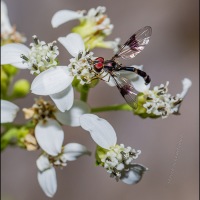
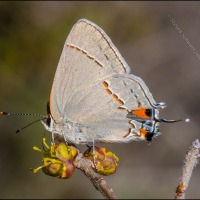
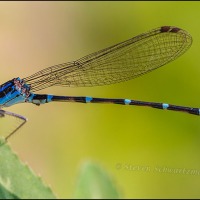
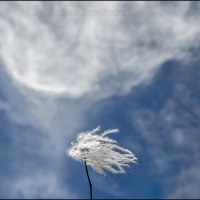
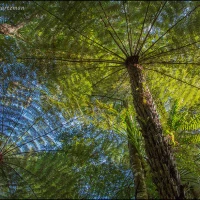
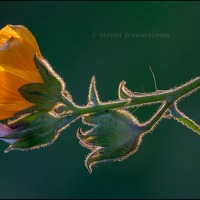
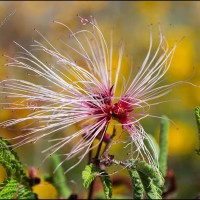
First we get news of the purple larvae’s identity being pinned down, and now we have pinweed to admire.
The disc flowers look remarkably like chain-mail. What really surprised me was the distinct “eye” at the top of the flower’s center. I’ve always assumed the name came from the entire flower being taken for an eye, but here, the purple “iris” framed by the “lashes” is even more eye-like.
shoreacres
August 17, 2015 at 5:49 AM
You must have been on (purple) pins and needles about learning the identity of those larvae. Now that you’re not on pins and needles anymore, I wonder what metaphor describes your condition.
Sometimes the top of a brown-eyed susan’s disk is more rounded and dome-like, in which case the whole flower head could be taken for the “eye.” I never thought about it till you mentioned it just now, but this flatter-and circular-topped disk does a much better job of mimicking an eye, particularly a pupil surrounded by an iris surrounded by lashes. I don’t suppose we’ll ever know exactly what eye-like feature led whoever coined the name to do so, and I also doubt we’ll ever know who the Susan was who inspired the name.
Steve Schwartzman
August 17, 2015 at 7:37 AM
Thanks for additional info on those colorful sawfly larvae.
Sammy D.
August 17, 2015 at 7:36 AM
You’re welcome. I make corrections and pass along new information whenever I become aware of something. It’s not often that the new information comes so quickly, but I seem to have had a hand in it. That’s because I’d emailed a couple of people, one being Mike Quinn, about a purported identification of the larvae that Steve Gingold found online. The other person I’d e-mailed, Val Bugh, pointed out that it was incorrect, and that may have prompted Mike Quinn to check further. He wrote: “I found the adult argid in the TAMUIC that Dan Hardy reared in 2007 and sent to TAMU” (that’s Texas A&M University). So now we know.
Steve Schwartzman
August 17, 2015 at 7:47 AM
You are fortunate to have knowledgeable resources to call on!
Sammy D.
August 17, 2015 at 8:50 AM
I am, but I’m careful not to ask too many questions of any one of them.
Steve Schwartzman
August 17, 2015 at 9:46 AM
None of our wild Susies are as colorful as your brown-eyed sweetheart. Nice to see that ring of flowers reaching for the sun…and pollinators.
Steve Gingold
August 17, 2015 at 10:59 AM
You showed a susan three weeks ago,
https://sggphoto.wordpress.com/2015/07/26/07-26-2015-frontyard-black-eyed-susan/
so it was time to contrast that with a hot and sunny Texas one.
Steve Schwartzman
August 17, 2015 at 11:09 AM
Amazing photo, the detail is so spectacular. This is on my list to add to the garden this coming year.
Charlie@Seattle Trekker
August 17, 2015 at 12:53 PM
According to the USDA, it’s been found in Washington growing wild in the counties of King, Island, and Pierce. The species has a very wide North American distribution:
http://plants.usda.gov/core/profile?symbol=ruhi2
Steve Schwartzman
August 17, 2015 at 1:25 PM
wow
sedge808
August 17, 2015 at 9:49 PM
Glad you like it.
Steve Schwartzman
August 17, 2015 at 10:59 PM
One extremely attractive eye. I am also wondering about Susan. Did she have only one eye? Have you noticed how fascinated we are with one eyed characters? http://humor.gunaxin.com/top-ten-fictional-one-eyed-characters/56430 On the list is the one eyed purple people eater.
Gallivanta
August 19, 2015 at 6:11 AM
I was reminded of the one-eyed, one-horned flying purple people eater when I did the post last week about the purple sawfly larvae. How many eyes they have, I don’t know, but now that I know these larvae exist, I’ll keep an eye out for them.
Steve Schwartzman
August 19, 2015 at 7:25 AM
An eye…..there’s that one eye again.
Gallivanta
August 19, 2015 at 8:07 AM
And I take pictures with one eye (my left) at the camera’s viewfinder.
Steve Schwartzman
August 19, 2015 at 1:02 PM
Is that just what you prefer to do or is it a good technique which you have perfected? Using the left eye I mean.
Gallivanta
August 20, 2015 at 6:07 AM
It wasn’t (isn’t) a conscious thing: I just find myself putting my left eye to the viewfinder rather than my right.
Steve Schwartzman
August 20, 2015 at 8:22 AM
[…] or great blanketflower, and even (confusingly) brown-eyed susan, which I associate with a different genus in the sunflower family. In any case, I was taken with this Gaillardia flower head that had dried out and was part-way […]
A different Gaillardia | Portraits of Wildflowers
October 11, 2017 at 4:54 AM